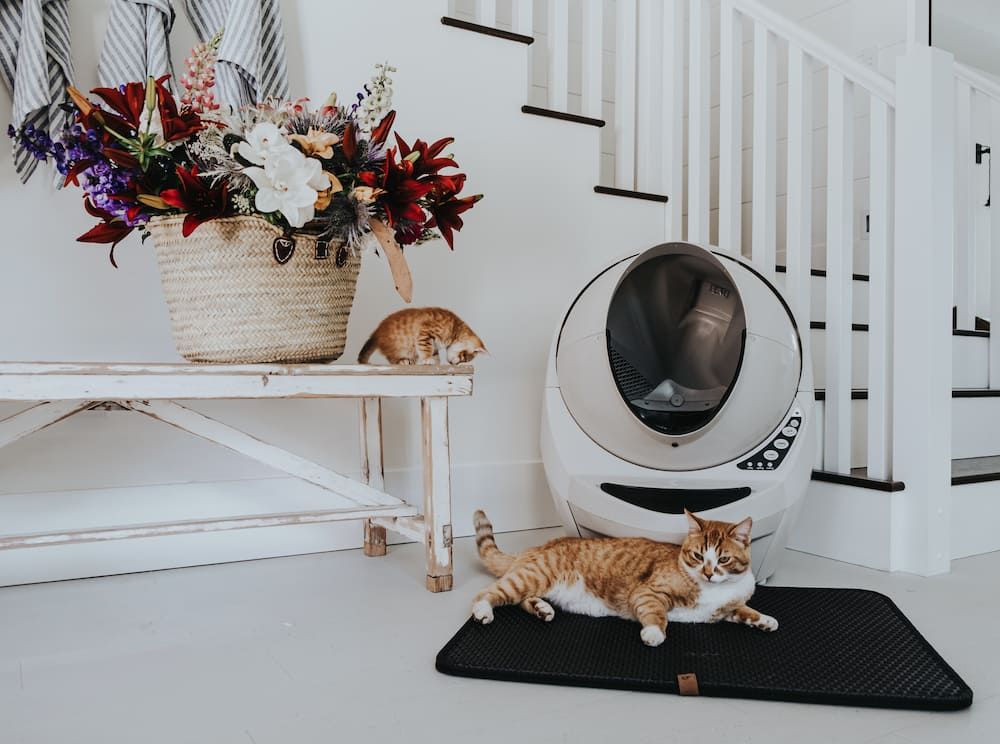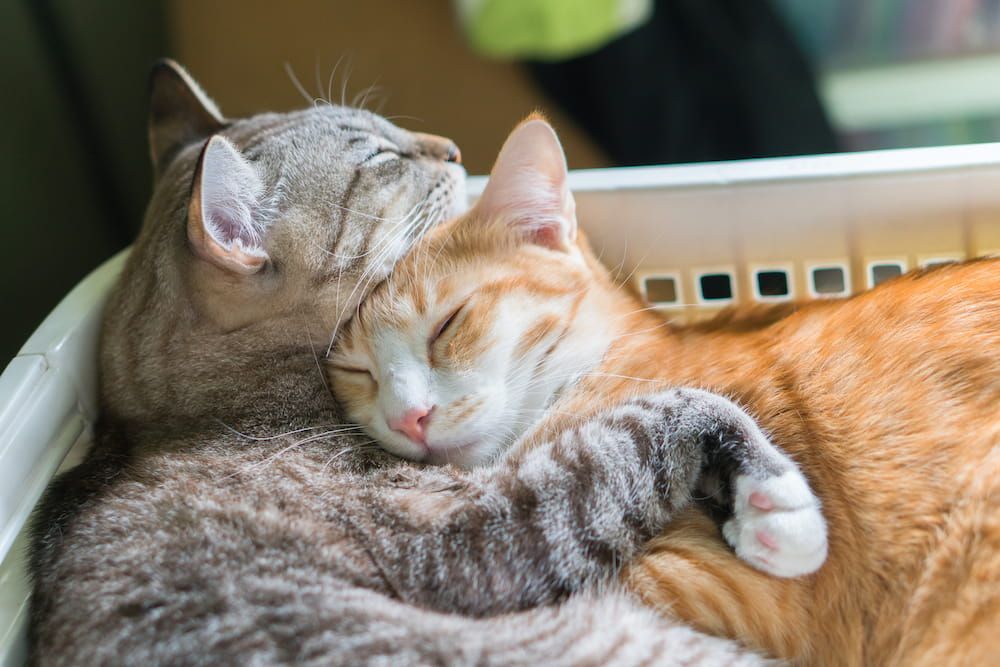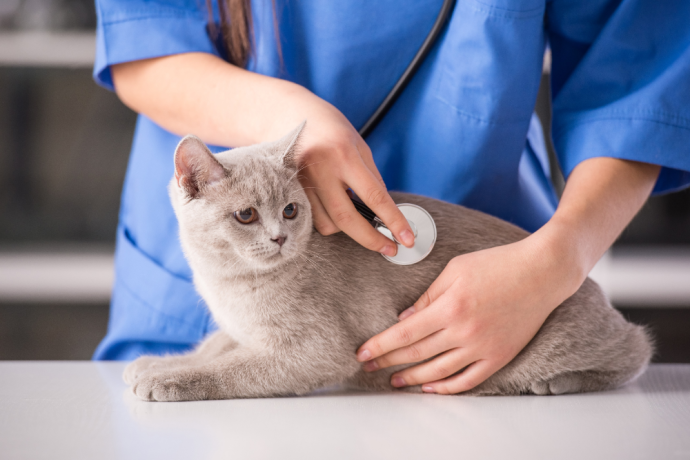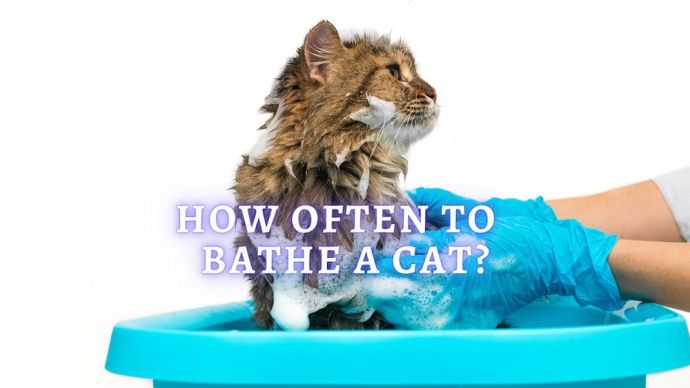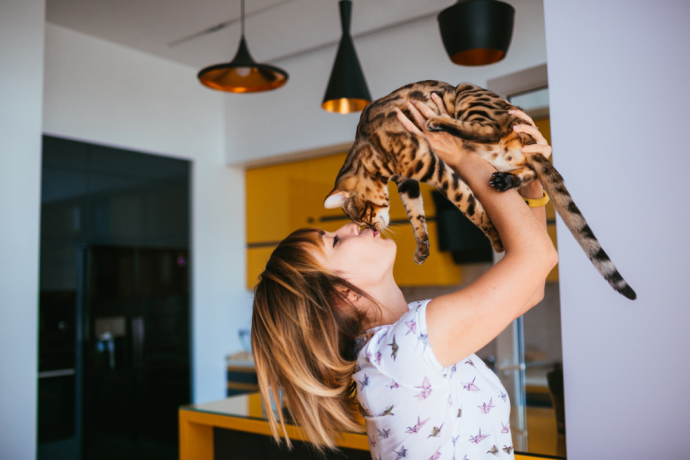Can Cats Share a Litter Box? How Many Boxes Should Be in a Multi-Cat House?
Written by:
Author: Scott Jeffrey
Scott is a professional blogger with 12+ years of experience in writing, and holds an MA in anthropology. He has two cats as housemates. Also, Scott is passionate to research on pet-related topics such as dog training, puppy feeding, and cat health.
View all 63 articlesLearn about our editorial process and veterinary review board.
Viewed: 209
Updated on: 08/03/2022
If you are thinking of becoming the proud owner of a second cat, or you have someone going to be visiting you with a second cat, you may wonder if your pets can share the same litter box.
This is a common question many pet owners have, and it’s not uncommon for many cats to face some difficulty at first with sharing their toilet. Litter box sharing is not always a good idea, and this article will help you decide if your pets can or cannot share a pot.
There are benefits to using the same pot for multiple pet owners, such as living in group homes. Litter boxes do accumulate germs and parasites when used by multiple cats over time. There are also health benefits to not sharing potties as health concerns may not transfer between pets.
When people think of sharing litter boxes, they typically view it as an inconvenience. Many people believe this is an easy way to keep the mess down and make sure that multiple rooms of their home don’t have to have potties in them.
Can Cats Share a Litter Box?
If there is only one box present in a house, cats will usually and eventually share it. Giving your feline friends the option of trying out their own litter boxes can often be a better choice, reducing stress in the home. Cats are often territorial and somewhat possessive. Even a pot can become an area where pets will mark their territory and not let others use it.
Giving your pets separate toilets can leave them feeling more comfortable.
Why should cats be using separate litter boxes?
Multiple boxes are more sanitary in your home. You could also consider the option of:
- Having these boxes will reduce the chance of territorial issues or other unwanted behaviors.
- Additional boxes improve urination frequency, reducing urinary tract infections and other concerns.
- Multiple potties throughout your home will also reduce odors and keep your home cleaner as you won’t have an overfilled pot that could lead to problems with the waste throughout the house.
Making Litter Boxes Available to Each Cat
If you have multiple potties in your home, you should make sure that the cat’s personalities and preferences play a role in where they decide to use as a pot. Placing it in an area where one pet commonly is or making sure that it is easily accessible can clearly define roles for who will use each box.
How many litter boxes should be in a multicat house?
In a multicat house, it is usually recommended that you have a litterbox for each pet and potentially a neutral litter box as an extra option if you have more than 2 cats. The added pot will ensure that all the pets in your home have a clean space to use the bathroom when they need it. When you have 3 cats or more, it can be tough to stay on top of each individual box, so the added box gives a bit of overflow space for all of your pets and a neutral spot that does not have to be claimed.
Multiple boxes in a multicat house is an excellent idea for keeping the chances of spreading sickness lower and making your life easier by reducing the waste and smell from the pot by spreading them throughout multiple locations where your pets can bury their waste.
READ MORE: Where to Put Cat Litter Box?
Why do my cats not want to share a litter box?
A series of issues can stem from multiple pets using the same litter box. If you are trying to have several cats using the same pot, you might see them start to behave differently. It’s not uncommon to see one pet even abstain from using the litter to go elsewhere throughout your house.
Reasons cats don’t share litter boxes:
Behavior:
A dominant cat might block access to the litter box for the rest of the pets. It is not uncommon for them to claim ownership of a pot and regularly mark its territory. If you have a cat that has been on its own for some time and you are introducing a new pet to the environment, this behavior is quite common.
Social aggression like hissing, swatting, chasing, and blocking the box may happen, and you might find the more dominant cat start marking their territory around the house if there is just one litter box as well. Avoid these problems by keeping multiple boxes available to start with.
Health:
It can be more difficult to track potential health issues in your cats if they are using the same toilet. If you notice your pet is becoming resistant to using the litter box, this could be a sign of an underlying issue like a bladder infection or something like cystitis.
It can be difficult to tell if your pet is urinating frequently and normally or if there could be the presence of blood in stool or urine without your cat using a separate box. It can be far easier to track each cat’s health and make sure they maintain regular digestion.
An unkempt pot can become a health hazard and your pets might avoid it due to social reasons as well as avoiding the mess and resulting odors that it may be causing. Such issues could cause you to soiling your home outside of the litter box or engage in inappropriate marking behaviors. These issues could lead to some cats purposefully holding their urine longer, leading to adverse health effects like UTIs.
A self-cleaning toilet can help you stay on top of this problem and ensure that your pet’s litter remains clear. Keeping your pot clean regularly means checking on it once or multiple times a day. Getting a litter tray or multiple toilets can make your cleaning job easier.
READ MORE: How to Stop Cat From Pooping Outside the Litter Box?
Accidents are bound to happen:
When you have multiple cats, the odds are fairly good that you will end up with accidents in your home at some point. Even if you have three or two pets, there are bound to be times where they won’t have enough space and the dominant cat may start to mark.
Cats are also drawn to certain odors, while others repel them. While they may use the same pot out of necessity, another pet’s aroma will eventually cause them to move on. Despite how clean your cat’s nose is, it is extremely sensitive, and they might detect smells that we don’t perceive.
Lingering odors can result in your cat finding an alternative space to relieve themselves, such as a rug or a hidden corner in your home. Finding ways to remove these items with a pet spray or getting rid of an old rug that has been marked can be one of the best ways to remove odors from your home due to dampness and cut down on accidents throughout the home as well.
READ MORE: How to Clean a Cat Litter Box?
Retraining your cats who have not been using the litter:
If your pet stops using the litter, you may need to retrain them that they have a safe area to use the litter box. If you have a pet that is resistant to using the litter, you can retrain them to use a new pot by cleaning out their old one and starting fresh where it has no marked scents on it. You could also consider getting an extra litter box.
Clean any areas in your home where accidents occurred. Place a pot, food, and water in a “safe room” — perhaps the spare bedroom after it’s properly cleaned or a bathroom with rugs that can be washed — with the litterboxes, catnip, and other essentials. Set up a bed and a scratching post or tree for your cat to sleep on. For a short time, keep the other pet away from it. Keep your outside-the-box cat there for several days (up to a few weeks) with frequent visits from you until you notice the litterbox becoming used regularly. Then open the door and allow them to reacquaint on their own time, but don’t push them.
With the aid of synthetic pheromones from your veterinarian or pet supply shop, you may try to lower stress levels in your home. These substances mimic those produced by a mother pet to soothe her kittens, and they do an excellent job of relaxing some cats. If you have pets that are being particularly territorial, these solutions can be a crucial step to keeping your pets safer
FAQ:
Is it okay for cats to share a litter box?
Cats can certainly share a litter box and there is nothing wrong with several cats using the same box. It can often be easier if you are willing to bring in several boxes, especially for keeping your home clean and making sure that your cats do not get territorial about the litter.
Can 2 cats use the same box?
2 cats can use the same litter box but this is often discouraged because it can cause behavior problems when one cat gets aggressive, it increases the chance for poor health effects, and it will lead to the chance that your cats might face difficulty if you are in a position where you have to monitor their health. When cats use different boxes, it can be easier to monitor their digestion and check for other signs of health problems. Two cats sharing litter boxes can be fine, but it’s usually best to ditch the shared litter box when you have a sick cat.
Do you really need 2 litter boxes?
Two litter boxes make it easier for you to track your cats’ health and prevent inconvenience if they start to get territorial. If you have several cats, you might want to consider bringing in multiple litter boxes to the point where you have one for each cat and an additional box for when your litter box might be full.
More boxes will make your life easier and keep your cats on good behavior.
How many litter boxes should 2 cats have?
If you have two cats, you usually get at least 2 litter boxes. Having a space for each cat to go to the bathroom is usually best for their health and for relationships amongst your cats. The number of litter boxes will improve your cats’ comfort.
Conclusion:
If you have multiple pets or are getting several cats, now may be the best time to prepare and get ready for sharing litter boxes. A litter box does not have to be a struggle in your home if you can get several for your cats and keep your cats safe and happy through the use of a multi-litter box setup.
 Cat Care Why Doesn’t My Cat Like to be Held? 8 Reasons Why And How to Change It
Cat Care Why Doesn’t My Cat Like to be Held? 8 Reasons Why And How to Change It - 2048
- 2
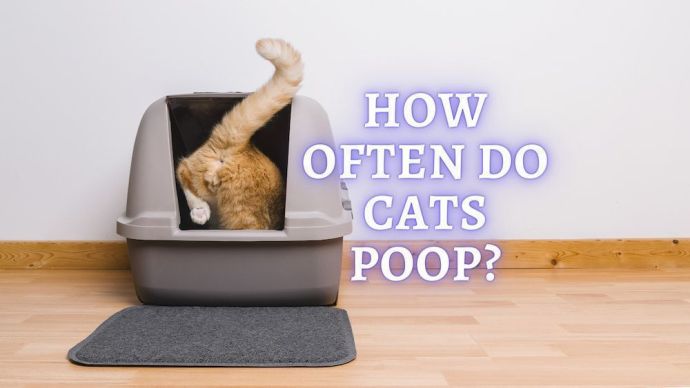 Cat Care How Often Do Cats Poop? Cat Poop: Normal, Problems, Constipation, Diarrhea, and More
Cat Care How Often Do Cats Poop? Cat Poop: Normal, Problems, Constipation, Diarrhea, and More - 166
- 0
 Cat Care Cat Twitching in Sleep: How to Know Cat Twitching in Sleep or Having Seizure
Cat Care Cat Twitching in Sleep: How to Know Cat Twitching in Sleep or Having Seizure - 337
- 0
 Cat Care Why Does My Cat Attack My Legs? 10 Reasons Why and What To Do About It (Vet-Approved Advice)
Cat Care Why Does My Cat Attack My Legs? 10 Reasons Why and What To Do About It (Vet-Approved Advice) - 45076
- 21
 Cat Veterinary Tips Cat Stomach Gurgling: Vet Advice on Why is Your Cat Stomach Gurgling?
Cat Veterinary Tips Cat Stomach Gurgling: Vet Advice on Why is Your Cat Stomach Gurgling? - 33727
- 4
 Cat Veterinary Tips My Cat Lost its Voice: Can Cats get Laryngitis? (Vet Advice)
Cat Veterinary Tips My Cat Lost its Voice: Can Cats get Laryngitis? (Vet Advice) - 22889
- 13











